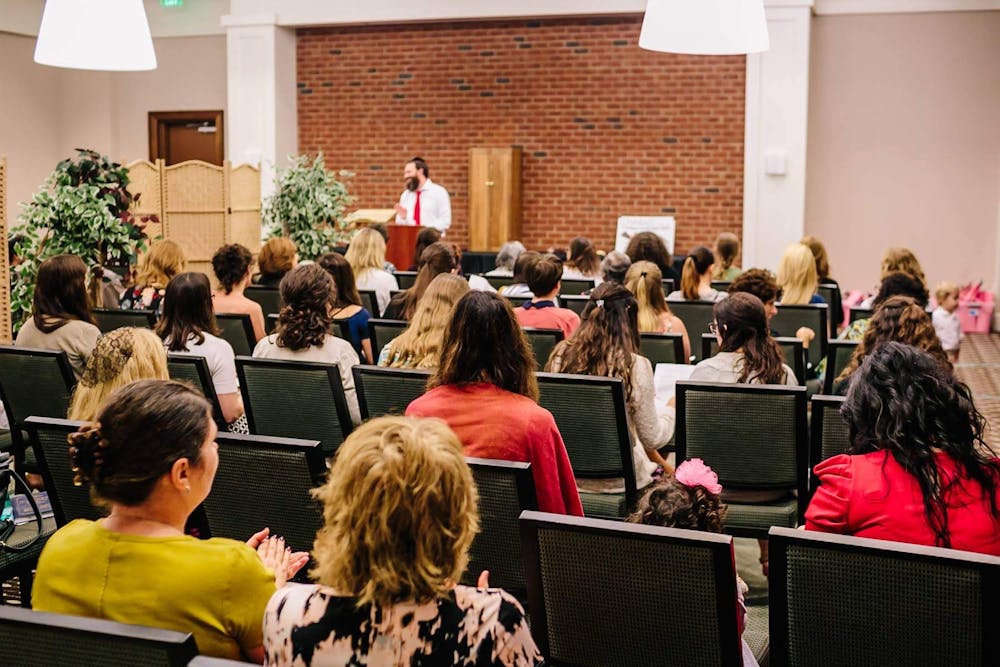“This policy requires all units in the University to provide reasonable accommodations for religious beliefs,” UNC Media Relations said in a statement.
Reasonable accommodations relating to students’ observance of religious holidays include University approved absences from class and the ability to reschedule academic work or deadlines.
“I was not even aware that there were accommodations available,” Haller said.
Many religious students seem to have no knowledge of the University policy. Julian Goldner, a first-year international student from Costa Rica, said he knows that none of his teachers will refuse — but he views it as students having to justify their religious rights.
“Even if an extended deadline is provided, I feel like it’s not enough simply because of the fact that you wouldn’t ask anyone to work during Christmas — so why would you ask people to work during the holiest days of their respective religions?” Goldner said.
Goldner added that he feels there isn’t a simple solution to the issue, as canceling school for every holiday would be unproductive.
“I think it’s just the reality of being part of any minority religion,” Goldner said.
Goldner said he feels the University could still do a better job of acknowledging the Jewish holidays.
“Last week, it was Rosh Hashanah, which is also a major holiday. I feel like I’ve seen other institutions acknowledge it, but not really UNC,” Goldner said. “I definitely feel like it’s not very known. At UNC, I’ve met people that have never met a Jewish person in their lives before me. It’s kind of crazy. It’s not anything bad, but it just does feel like maybe we could have a bit more representation.”
Observing Yom Kippur during a pandemic
Chabad of Durham/Chapel Hill and UNC Hillel provided members of the Jewish community in Chapel Hill with resources during the High Holidays.
Chabad of Durham/Chapel Hill hosted socially distanced services in person as well as an online Zoom option for those who felt uncomfortable meeting in person. They used a tent with open walls and required social distancing and that everyone wear masks.
To get the day's news and headlines in your inbox each morning, sign up for our email newsletters.
“We feel like, this year more than ever, people are much more in tune with their spiritual side and very aware of the important things in life,” Rochel Rosenberg, the executive assistant of Chabad of Durham/Chapel Hill, said. “So people are really feeling the holidays more than ever, even though it’s in a different way.”
UNC Hillel has moved most of its operations online. Hillel International created "Higher Holidays," an online service designed for college students.
It also hosted a virtual Yizkor discussion for students who have experienced the death of a loved one. To break the fast on Yom Kippur, it offered contactless pick-up of Brandwein’s Bagels for students who had signed up in advance.
“During a tumultuous year, UNC Hillel will continue to be present as a spiritual and communal resource for Jewish Tar Heels,” Hannah Gutterman Spinrad, the campus director of UNC Hillel, said.
Sueldo said observing Yom Kippur this year did not differ too much from other years, as fasting was usually done at home.
Although fasting at home stayed the same, synagogues being closed has made it difficult for some to connect with the Jewish community.
“It's much more of an isolated Jewish community this year because, even though you can do things on Zoom, it's not very personal,” Haller said. “Not being able to see this new Jewish community really sucks because I can’t develop relationships in it as well.”
Others have found that the best way to connect as a community is by social distancing. Goldner broke his fast with Jewish friends he has met in Chapel Hill.
“It’s freshman year and you’re in college, you’re obviously not with your family,” Goldner said. “Either way, with coronavirus or without it, I feel like it’s not too different than what I would have done without the pandemic.”
arts@dailytarheel.com
@mikaltrav




